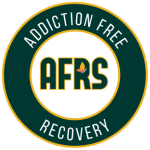When it comes to addiction treatment, addressing just one aspect of a person’s struggles often isn’t enough. Many individuals battling addiction also struggle with co-occurring mental health disorders, a complex interplay that can significantly impact the effectiveness of treatment.
Essential Takeaways
- Integrated Treatment is Key: Effective recovery involves addressing both mental health and substance use simultaneously through coordinated care.
- Understand the Cycle: Recognizing the harmful cycle between mental health disorders and substance use disorders is crucial for effective treatment.
- Ongoing Support is Vital: Maintaining recovery requires continuous support, therapy, and healthy coping mechanisms to prevent relapse.

In this blog post, we’ll explore the impact of co-occurring mental health disorders on addiction treatment, how they interact, and the best strategies for addressing both issues simultaneously.
Understanding Co-occurring Mental Health Disorders
What Is a Co-occurring Disorder?
Co-occurring disorders, often referred to as dual diagnosis, involve the simultaneous presence of a mental health condition and a substance use disorder. This means that an individual is struggling with both a mental health disorder, such as anxiety or depression, and a substance use problem, such as alcohol addiction or drug addiction.
To put it simply, imagine a person who has been diagnosed with both severe depression and an alcohol use disorder. They might use alcohol as a way to cope with their depressive symptoms, while the alcohol use further exacerbates their mental health issues, creating a cycle that’s hard to break.
How Common Are Co-occurring Disorders?
The prevalence of co-occurring disorders is alarmingly high. Research indicates that nearly half of individuals with severe mental health disorders also have a substance use disorder, and vice versa. This overlap can complicate both diagnosis and treatment, making it essential for treatment plans to address both issues comprehensively.
For example, a study published in the Journal of Substance Abuse Treatment found that about 50% of individuals with bipolar disorder also struggled with substance abuse. Similarly, the National Institute on Drug Abuse (NIDA) reports that nearly 40% of individuals with an anxiety disorder also have a substance use disorder.
The Relationship Between Mental Health Disorders and Addiction
The Cycle of Substance Abuse and Mental Health Issues
Understanding the relationship between mental health disorders and addiction requires examining the cyclical nature of their interaction. Often, individuals may turn to substances as a way to self-medicate or cope with their mental health symptoms. This might seem like a temporary solution, but it often leads to more severe problems.
For instance, someone with Post-Traumatic Stress Disorder (PTSD) might use drugs or alcohol to numb their traumatic memories. However, this self-medication can lead to increased substance dependence and exacerbate the PTSD symptoms, creating a vicious cycle that makes recovery more challenging.

Common Combinations of Co-occurring Disorders
Some combinations of mental health disorders and substance use disorders are more common than others. Here are a few typical pairings:
- Depression and Alcohol Use Disorder: Many people with depression may use alcohol to alleviate their symptoms, but alcohol can deepen feelings of sadness and hopelessness.
- Anxiety Disorders and Stimulant Use: Individuals with anxiety may turn to stimulants, such as cocaine or methamphetamine, to combat feelings of unease. However, these substances can heighten anxiety and lead to increased use.
- Bipolar Disorder and Drug Abuse: People with bipolar disorder may use drugs to manage mood swings, but this can lead to erratic behavior and intensify the disorder’s symptoms.
Challenges of Treating Co-occurring Disorders
Diagnostic Challenges
Diagnosing co-occurring disorders can be particularly challenging due to overlapping symptoms. For example, both depression and substance abuse can lead to similar symptoms, such as fatigue, changes in sleep patterns, and difficulty concentrating. This overlap can make it difficult to determine which condition is primary and which is secondary, complicating treatment planning.
Furthermore, individuals may not always present with both conditions at the same time, leading to misdiagnosis or incomplete treatment. A comprehensive assessment by a mental health provider trained in dual diagnosis is crucial to accurately identify and address both disorders.
Integrated Treatment Approaches
Integrated treatment is a holistic approach that simultaneously addresses both mental health and substance use disorders. This method contrasts with traditional approaches where one condition might be treated separately from the other, often resulting in incomplete recovery or relapse.
Integrated treatment involves a coordinated effort from both mental health and addiction specialists. This approach includes:
- Coordinated Care Plans: Developing a comprehensive treatment plan that addresses both disorders in a unified approach.
- Collaborative Therapy Sessions: Involving therapists, psychiatrists, and counselors who work together to provide consistent care.
- Case Management: Ensuring that all aspects of the individual’s treatment are managed effectively, including medication, therapy, and support services.
Effective Treatment Strategies for Co-occurring Disorders
Integrated Dual Diagnosis Treatment
Integrated dual diagnosis treatment is designed to treat both mental health disorders and substance use disorders as a single, unified plan. This approach ensures that neither condition is ignored and that both are addressed simultaneously, leading to more effective and lasting recovery.
Key components of integrated dual diagnosis treatment include:
- Comprehensive Assessment: A thorough evaluation to identify both the mental health and substance use issues.
- Individualized Treatment Plans: Tailored plans that address the specific needs of the individual, including both their mental health and substance use.
- Ongoing Support: Continuous support and monitoring to adjust treatment as needed and to ensure long-term success.
Evidence-Based Therapies for Co-occurring Disorders
Several evidence-based therapies are effective in treating co-occurring disorders. These therapies focus on addressing both the mental health and substance use issues, providing individuals with the tools they need to manage their conditions.
- Cognitive Behavioral Therapy (CBT): CBT helps individuals identify and change negative thought patterns and behaviors associated with both their mental health and substance use disorders. It provides practical skills for managing cravings and improving overall mental health.
- Dialectical Behavior Therapy (DBT): DBT is particularly useful for individuals with mood disorders and substance use problems. It combines cognitive-behavioral techniques with mindfulness and emotional regulation strategies.
- Motivational Interviewing (MI): MI focuses on enhancing an individual’s motivation to change. It is particularly effective in addressing ambivalence towards treatment and fostering commitment to recovery.
The Role of Medication in Treatment
Medication can play a crucial role in managing symptoms of mental health disorders and supporting recovery from substance use. However, medication management must be carefully monitored to avoid potential interactions between psychiatric medications and substances.
- Medications for Mental Health Disorders: These may include antidepressants, antianxiety medications, mood stabilizers, and antipsychotics. They help manage symptoms and improve overall mental health.
- Medications for Substance Use Disorders: Medications such as methadone, buprenorphine, and naltrexone are used to manage cravings and withdrawal symptoms in substance use recovery.
Supporting Recovery and Long-Term Success
Building a Support System
A strong support system is vital for sustaining recovery from co-occurring disorders. This support system includes:
- Family and Friends: Having a supportive network of family and friends can provide emotional support and encouragement throughout the recovery process.
- Support Groups: Groups such as Alcoholics Anonymous (AA) or Narcotics Anonymous (NA) offer peer support and a sense of community for individuals in recovery.
- Therapeutic Relationships: Ongoing therapy with mental health professionals can provide continued guidance and support.

Relapse Prevention and Ongoing Care
Preventing relapse and maintaining long-term sobriety requires ongoing care and strategies for managing stress and cravings. Effective relapse prevention strategies include:
- Coping Mechanisms: Developing healthy coping strategies for dealing with stress, triggers, and cravings.
- Regular Check-Ins: Frequent check-ins with a therapist or counselor to address any emerging issues and adjust the treatment plan as needed.
- Continuing Care Programs: Engaging in continuing care programs, such as outpatient therapy or aftercare services, to provide ongoing support and monitoring.
Conclusion
Addressing co-occurring mental health disorders in addiction treatment is crucial for achieving lasting recovery. By recognizing the complex relationship between mental health and substance use, and implementing integrated treatment approaches, individuals can experience more comprehensive and effective care. Whether you’re seeking help for yourself or a loved one, it’s important to ensure that both conditions are treated simultaneously to foster long-term success and well-being.
Ready to tackle co-occurring disorders head-on?
Contact us today to learn more about our integrated treatment programs. Our team of experts is dedicated to providing the comprehensive care you need to achieve lasting recovery. Don’t wait—reach out now to start your journey towards a healthier, more balanced life!
FAQs
- What are co-occurring disorders?
Co-occurring disorders, or dual diagnosis, refer to the simultaneous presence of both a mental health disorder and a substance use disorder. - How common are co-occurring disorders?
Nearly half of individuals with severe mental health disorders also struggle with substance use disorders, highlighting the importance of integrated treatment. - What is integrated treatment?
Integrated treatment addresses both mental health and substance use disorders simultaneously, providing a coordinated and comprehensive approach to care. - What therapies are effective for co-occurring disorders?
Evidence-based therapies such as Cognitive Behavioral Therapy (CBT), Dialectical Behavior Therapy (DBT), and Motivational Interviewing (MI) are effective in treating co-occurring disorders. - What role does medication play in treatment?
Medication can help manage symptoms of mental health disorders and support recovery from substance use disorders. However, it must be carefully monitored.


























